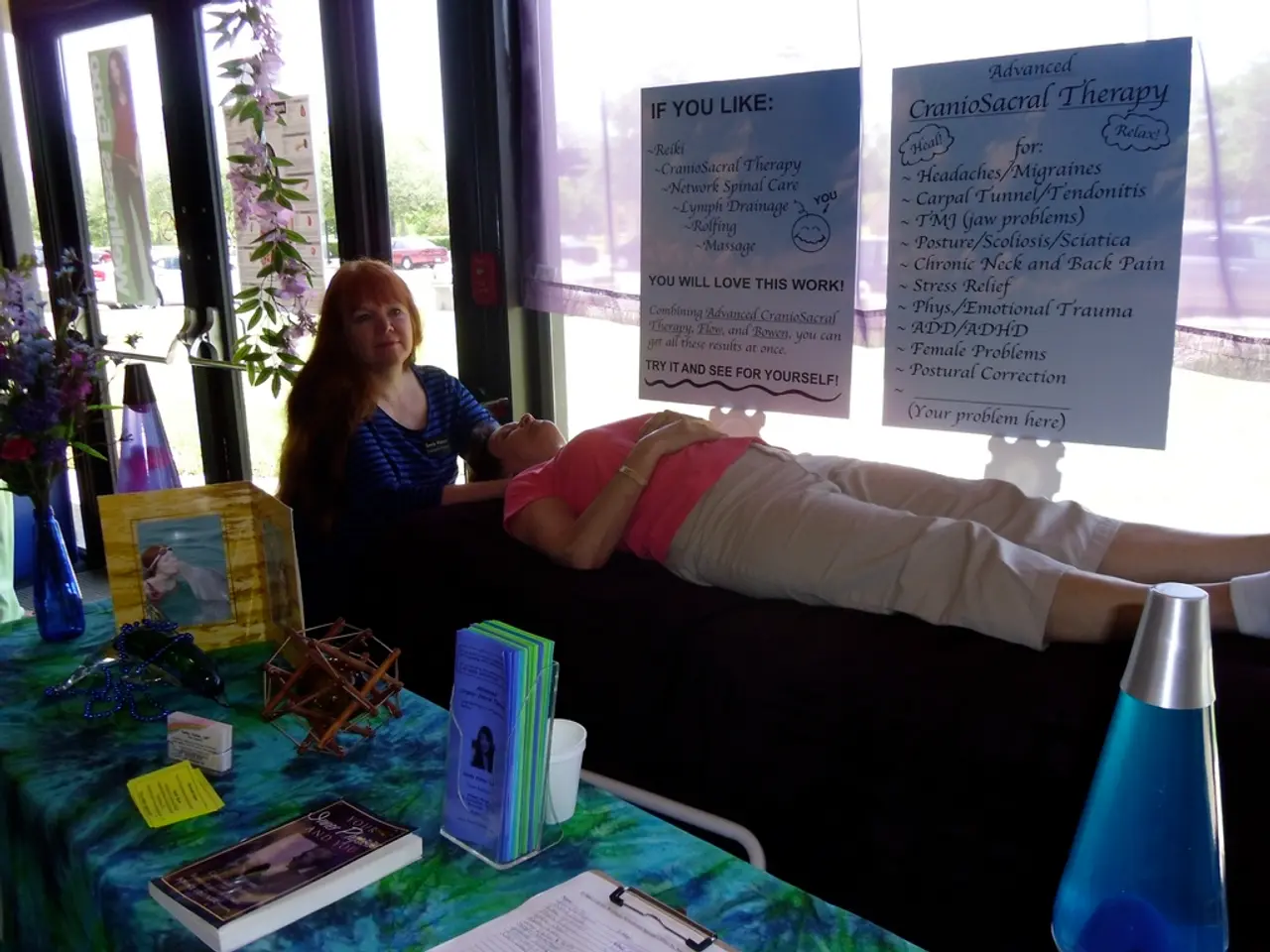Internal Depression: Recognizing Symptoms and Strategies for Managing
Major Depressive Disorder, commonly known as MDD, is a severe mood disorder that affects millions worldwide. This condition causes individuals to experience prolonged periods of depressed mood, alongside various other symptoms.
Symptoms of MDD
The symptoms of MDD are diverse and can significantly impact a person's daily life. They include persistently low or depressed mood, an inability to feel pleasure (anhedonia), decreased interest in pleasurable activities, feelings of guilt, feelings of worthlessness, lack of energy, problems concentrating, changes to their appetite, agitation, problems sleeping, and suicidal thoughts.
The Evolution of Depressive Disorders
Historically, a subtype of depression known as endogenous depression was used to describe depression without external stress or trauma. This type of depression is now largely subsumed under the broader diagnosis of MDD, as advances have shown overlapping pathophysiology and clinical presentations between endogenous and other depression types.
Neurobiology of MDD
From a neurobiological perspective, key mechanisms implicated in MDD and formerly endogenous depression include neurotransmitter imbalances (serotonin, dopamine, norepinephrine, GABA), hormonal disruptions (cortisol dysregulation indicative of chronic stress, thyroid hormone imbalances, sex hormones), and structural and functional brain changes particularly involving the amyggdala, which is linked to emotion regulation and stress responses.
Treatment of MDD
Treatment for MDD encompasses various approaches, including pharmacotherapy (selective serotonin reuptake inhibitors, ketamine, electroconvulsive therapy), psychotherapy (primarily cognitive-behavioral therapy), and neuromodulation techniques such as repetitive transcranial magnetic stimulation (rTMS).
The Role of Psychotherapy
Psychotherapy, a type of "talk therapy", can help a person change certain habits contributing to MDD. Cognitive behavioral therapy (CBT) is a common type of psychotherapy for MDD, helping a person identify the connection among their thoughts, behaviors, and feelings. Other therapies, such as interpersonal therapy (IPT) and family-focused therapy, can also be effective in managing MDD symptoms.
The Importance of Lifestyle Changes
Lifestyle changes, such as getting regular physical activity, going to bed and waking up at a consistent time, eating regular, healthy meals, avoiding alcohol, nicotine, or recreational drugs, postponing important decisions until MDD symptoms have subsided, and trying to connect and talk with people, can boost a person's mood and improve MDD symptoms.
Seeking Help
If you or someone you know is struggling with MDD, it's crucial to seek help. There are various resources available, including hotlines that offer free, confidential help from trained professionals. Some examples include Samaritans (877-870-4673), National Suicide Prevention Lifeline (800-273-8255), Lifeline Chat, and Postpartum Support International (800-944-4773).
The Impact of MDD
MDD can affect a person's life by leading to a lack of energy, issues concentrating, appetite changes, and problems sleeping. It's important to remember that with appropriate treatment, many people with MDD can significantly reduce their symptoms. MDD is a serious illness that can respond well to treatment, which may include medications such as antidepressants, mood stabilizers, and antipsychotic medications.
The Journey to Recovery
Finding an effective treatment plan may take time, and many people end up responding well to a combination of medication and other treatments, such as psychotherapy. With patience, persistence, and the right support, recovery is possible.
- The symptoms of MDD, such as an inability to sleep, decreased appetite, and suicidal thoughts, can significantly impact a person's daily life.
- From a neurobiological perspective, key mechanisms implicated in MDD include hormonal disruptions and neurotransmitter imbalances, emphasizing the role of science and health-and-wellness in understanding and addressing this condition.
- As part of the treatment of MDD, therapies like cognitive-behavioral therapy (CBT), interpersonal therapy (IPT), and family-focused therapy can help individuals manage their symptoms and improve their mental health.
- Incorporating lifestyle changes, such as regular exercise, maintaining a consistent sleep schedule, and adopting a healthy diet, can also aid in boosting a person's mood and recovery from MDD.




